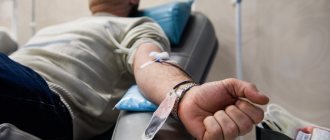When using an insulating scarf like this on a claustrophobic patient, we can make a hole in an unimportant place: otherwise the patient will be afraid that we will suffocate him
Adults are afraid of us more than other doctors. In second place, perhaps, are surgeons, but they are not feared for long. About a third of patients suffer from dental phobia or dental phobia.
The best fear is rationalized. “Ahh, doctor, I’ll open my mouth now, and you’ll stick a huge long needle in there and do something” - great. “Will you infect me with hepatitis from your dirty tools?” - even better, everything is extremely rationalized. By the way, demanding a demonstration of sterilization is your completely normal right. “And if the drill breaks in my mouth, will the fragments fly out or in?” - in general, the best thing to work with, because the patient has a specific scenario. More precisely, even two!
Fear of a doctor is most often irrational. Somewhere, once upon a time, someone got into a patient’s mouth unsuccessfully in childhood, and now the doctors first became evil old women, and then a complex like “I’d rather die, but I won’t give in to them” simply formed. It is normal to feel fear, and you can work with fear. The question is how. For example, women may cry in the office from emotional stress - this is normal; up to a third of patients do this. But men act differently. They have a wonderful life hack: they don’t come.
In general, come in, I will teach you to be afraid of dentists. Let's talk about the causes of fear, methods of working with it, and a little about real risks. Well, thanks to the Soviet compulsory medical insurance approach, I now have boxing with anesthesia in every clinic.
What is dental phobia or dental phobia?
This is when you are afraid of dental treatment.
You may also be afraid not of the treatment itself, but of the dentist, of medical devices, and of opening your mouth in general in front of strangers who are trying to do you good. Or any other element of the dentist’s office - from smell to sound. Physiological manifestations are completely normal, as for any other fear. For example, if you don't have dental phobia, you can jump with a parachute and remember the sensations on the plane. A mentally healthy person should experience irrational fear of the same nature.
Dental phobia is characterized by the following reactions:
- Increased blood pressure. Very convenient when you need to run away from a doctor or fight with him.
- Increasing muscle tone also increases your chances in a fight with a doctor from an evolutionary point of view.
- Pupil dilation (a side effect of activation of the sympathetic nervous system, the original meaning of the reaction is almost lost).
- Discomfort in the gastrointestinal tract: because you urgently need to take resources for something else, and this system is rushed without control. By the way, if you also start to smell terrible, this will increase your chances in battle. And it will be easier to run, so the effect is also evolutionarily useful.
- Degradation to the level of trained quick decisions, often reflexive - without the participation of complex conscious processes.
Basically, it's the classic prolonged fight-or-flight response that turns into a long flight, flight, flight response.
The only thing is that evolutionary progress has not yet affected adaptation to dentists. There is another reaction - “freeze.” In this case, the patient sits motionless in a chair with a pale appearance. As a rule, in this situation, resources are pulled from the periphery to increase supply to the brain, so there are far fewer problems with the “freeze” reaction. The patient consciously understands that everything is going as it should, he just feels uncomfortable. In this case, it is especially helpful to give the patient back control over what is happening through a very detailed explanation of what is happening and the ability to generally control the intervention. I'll tell you more about this below.
And there is also dental phobia - an even more interesting type of reaction, when fear is caused not by the intervention itself here and now, but by the thought that one will have to undergo it. As a result, the patient systematically avoids dental appointments because he is afraid of treatment. Over time, the need for this treatment begins to grow, but the patient understands that its volume will also increase - and is proportionally more afraid. As a result, this leads to the situation described above, when a masculine man endures to incredible limits, sometimes surprising even experienced surgeons. And in dentistry, you know, it’s quite difficult to bring your condition to a dangerous level. To do this, you need to make real efforts and endure pain for quite a long time, which will bring even the strongest among us to their knees. But the men cope, and then I have to assemble a new jaw for them - or call a surgeon to pump out pus from the cellular spaces of the skull.
How does a dentist help fight dental phobia?
For a dentist, dental phobia is a problem no less serious than for a patient: it interferes with effective treatment and prevents proper dental care. A good doctor will assess the severity of the phobia in advance and will make every effort to help the person cope with the fear. Dentistry itself is now developing along this path: patients are offered comfortable treatment methods that reduce not only pain, but also the level of stress. For this use:
- relaxing soundtrack. This could be soft, calm music or sounds of nature;
- distraction: the ability to watch TV, films during the reception;
- methods of psychological work with the patient. Sometimes a smile, light conversation or reassurance is enough to immediately reduce the level of fear. In other cases, the patient may be reassured if the doctor tells him exactly what he is doing or how much time is left until the end of the procedure.
Treatment can be adjusted to simply remove the most frightening aspects. If a person is afraid of the sound of a drill, chemical or ultrasonic methods, or simply “quieter” equipment, can be used to prepare teeth. If the phobia is associated with the smell of drugs, they select drugs that lack it or prepare them at a distance from the patient so that he does not feel them. You can almost always find an acceptable treatment option. The main thing is to contact your doctor and try to stop being afraid of the dentist.
The Good News: Fear is Normal
Being afraid of something is a normal physiological state.
It is not considered a psychiatric diagnosis as long as you can overcome your fear. If you can’t, then questions already arise (but this is not a diagnosis yet). It is believed this way: if you received treatment, although you were terribly afraid of it, everything is in order, you deserve to be called Sapiens. If not, then you need to do something about it next. For example, pathological fear of the dentist is not a fictitious dental phobia, but a so-called congenital one, which cannot be controlled at all, or, for example, acquired in early childhood, can be corrected by prescribing daytime tranquilizers (benzodiazepine series). They won’t completely remove the fear, but they will at least allow you to get to the clinic and get treatment. True dental phobia is a pathological story and requires treatment. A person cannot cope with it without outside medication or preventive behavioral therapy.
Often patients are afraid of pain, not the doctor. In this case, there is no need to try to overcome fear. This is even more normal, rarely does anyone like pain, although this does happen. The fact is that we can offer different means - from the Viking combat cocktail (nitrogen) and local anesthesia to medicated sleep and anesthesia.
The Bad News: Fear Is Mostly Irrational
This means that it can only be “overpowered” or bypassed, but not removed by any rational reasoning or action.
More precisely, there are several components of fear, for example, fear of the unknown, misunderstanding of the duration of the intervention, constant anticipation of pain, and so on - they can be reduced. And there are irrational factors with which nothing can be done. And fear of the dentist is usually a complex of these things. The most common irrational fears arise:
- Due to childhood psychological trauma, for example, successful treatment (suspension) of caries using a Soviet drill of the “bzzzzhrrrrr” model with the smell of burnt tissue (overheated dentin).
- The guilt is that you will be reproached for being in such a state. That is, the patient first brings himself to a serious state by being afraid of the doctor, and then begins to fear that the doctor will scold him for bringing himself to this point. Great combination.
- Constraints. For example, that previously there was no money for a dentist, and this will have to be explained somehow (in reality, of course, not).
- And just some kind of life attitudes, superimposed on the whole complex of the fact that you will have to get to the doctor, tell him something, open your mouth in front of a stranger and allow foreign objects into it, feel pain (if you are unlucky) and feel psychologically and physically helpless throughout the entire procedure.
Oddly enough, dental phobia can be congenital, that is, genetically determined. It's not very clear how this works, but here's a quote from a 2021 study:
It is clear that, in addition to environmental factors, genetic influences are important in the etiology of dental fear and anxiety, and should be considered in future studies of fear and anxiety associated with dental treatment and, potentially, interventions aimed at reducing distress that is a barrier to dental treatment utilization. Toward a Genetic Understanding of Dental Fear: Evidence of Heritability (doi: 10.1111/cdoe.12261)
What can you do to relieve fear?
In my experience, it is often easier for adults to overcome fear by increasing awareness.
A person is afraid not of the intervention itself, but of the unknown. The patient somehow scares himself, describes what is happening in his imagination, and relies on unreal things. True, there is also a point here: it may turn out that the real intervention is in fact more terrible than what the patient imagines. Therefore, in preventive conversations I do not show huge needles during a tour of the office, and in general, before such conversations, it is better to understand what exactly the patient is afraid of, so as not to frighten him even more with a demonstration of the arsenal of the Inquisition. From experience, no one is afraid of a spatula; I show it first.
In general, the psyche works like this: if some terrible thing happened to you and you are afraid, then the doctor can say:
- Well, patient, my tongue has turned green. Happens.
And then the doctor names some Latin word.
Hop - and you calm down, because in this short phrase there is information that you have something known, understandable, it has a term, and this happens not only to you, but to many in general. And if there is a term, it means that the phenomenon becomes not an unknown dangerous thing, but an understandable dangerous thing. It’s the same with fear: this is a unique event for the patient, but for the doctor he has hundreds of episodes a month. People are afraid that they are not like everyone else, and knowing that a doctor sees fear every day is also reassuring.
There is a lot of fear of losing control. The doctor gains power over you - and this is terrible. Therefore, you need to agree on the process and give the opportunity to manage it.
- When you say “ahh” or “stop” or blink twice, I will stop.
When I was a student, while studying pediatric dentistry at the department, children with moderate fear (without panic) were given a toy remote control on a wire before an intervention, and the wire stretched somewhere beyond their field of vision. The doctor turned on the drill and asked to press the red button on the remote control. The child pressed, the doctor saw that he was pressing and released the pedal. At this point, anxiety was greatly reduced. Then the duration of iterations was longer: drilled, washed, drilled again - these are far from modern devices. The main thing is to really stop when the patient asks, and not “now, just a second.”
Patients are also often afraid of the whistling sound of the turbine tip - this is the same dangerous bzzzz, turning into an inhuman whistle, which you may have heard in childhood. In our country, nozzles with such a rotation speed are rarely used; in the expensive segment, it is possible to afford other materials that allow us not to choose a turbine design. As a result, probably once every hundred patients I take out turbine tips (they are now used to saw massive structures).
Some are afraid of a rubber dam (cofferdam) - a latex scarf for isolating the oral cavity, which is generally needed for any more or less invasive interventions, including working with caries. If the patient is prone to claustrophobia, then he will be afraid of isolation - because the main fear there is the fear of suffocation, and the curtain of the oral cavity causes the same fear. You can make a hole in an unimportant place in the rubber dam - it will be easier for the patient.
Patients also like it when they are told in advance how long they need to endure. They are often afraid or embarrassed to ask questions. You tell a person that the worst thing lasts 15 seconds on this tooth and 25 seconds here, he understands the time distribution and does not panic ahead of time.
A very important point in fear is that a person has to face the inevitability of losing the illusion of immortality. We don't see atherosclerotic plaques, we don't see ulcers, we don't see how joints age and wear out. And here you cannot miss the evidence of mortality in dentistry, it is obvious and is in an area that is emotionally charged. And this is one of the hardest experiences in life. This fear is on a level with loss of reason and existential fear of loneliness and is one of the honorable three most terrible things for a person. But usually it is tested before going to the doctor. Often - instead of going to the doctor, alas.
What kind of pain relief do we use?
In the dental clinic Restoration, treatment is based only on the highest quality and modern drugs that meet the quality guarantee. We use:
- general anesthesia is a state when your consciousness is turned off and you do not feel pain (sleep);
- long-term sedation - a state of light sleep in which you will feel relaxed and light;
- sedation with nitrogen - oxygen - the patient is awake and conscious, but does not feel pain;
- local anesthesia – reduction of tooth sensitivity.
Fear and cowardice
Fear has nothing to do with cowardice.
Fear is the body's response to circumstances. Cowardice is the result of decision making. A fearless person is not one who is not afraid, but one who knows how to work with his fear. Every mentally healthy person is afraid in principle. Physiologically, fear is the mobilization of the body for an optimal reaction.
The good news is that the ability to work with your fears can be trained.
For example, in the case of dental phobia, you can start with small amounts of treatment, and then gradually get used to it. If you have diagnoses typical for 40-45 years old that require treatment, but do not require it right here and now, then you can start by stopping caries, hygiene, then do something else, and then move on to serious interventions - if the indications allow . This plan usually suits male patients. For our part, we do everything so that you spend as little time as possible in the clinic and get the finished result in a minimum of visits. Dentistry has become much more humane over the past ten years.
Where does fear of the dentist come from?
Each person's fear of dentists has its own reason, but the factors contributing to its occurrence are quite similar.
The oral cavity is one of the most sensitive areas in the body. Therefore, any medical procedures associated with the slightest intervention in this area cause a feeling of anxiety. And the person in the dental chair has a feeling of helplessness, giving rise to fear.
For many people, the fear of the dentist goes back to childhood. Memories associated with the dental office of the last century most often include a feeling of pain, inconvenience, resentment at the dentist’s harshness, and a nasty smell and taste. All this could not but lead to the emergence of a fear of the dentist, and subsequently to the development of a phobia.
Sometimes people are afraid of the dentist's reaction to the terrible condition of their teeth. Unfortunately, this fear is provoked by dentists who reprimand their patients too harshly for neglecting their health.
And the fear of visiting the dentist in children is often a reflection of the phobia of their parents. The child sees and feels how adults are afraid of the dentist, and he also becomes very scared.
Nitrogen
The simplest thing we can suggest to you is to breathe nitrogen. The same thing that makes a person fearless and joyfully laughing at pulled out teeth. It doesn’t remove pain in any way, but it perfectly turns off its emotional coloring, and this is a large part of the perception of pain. Children often play “fighter pilots” with these nitrogen masks and think that going to the doctor is fun and cool (if the nurse works properly, of course, she should know child psychology). Nitrogen is worth trying at least once as part of general development if you have any doubts: it is quite safe and can make your life very much easier during complex interventions.
Dentophobia and myths
They used to say that people with dental phobia should not have dental implants. Knowing this information further increased the fear of dental phobes. They preferred to go without teeth, just to avoid going to the dentist. Today, scientists and dentists have proven that implantation of new artificial teeth is indicated for even the most difficult patients. Here you just need to competently prepare the dental phobe by conducting a psychological conversation with him. The patient will feel like a participant in the process, and not a pitiful hare in front of the teeth of a wolf. Since a person without nerves will survive the treatment, his recovery period will also be quite easy.
It has been proven that women are more afraid of dentists than men. Many people consider the drilling procedure and anesthetic injection to be the worst moment in dental treatment.
It’s good that today almost all dentists take special courses on working with overly emotional clients.
Tranquilizers
Next, you can use tranquilizers, but they should not be prescribed by a dentist, unless we are talking about a serious surgical intervention.
If you take your pills “to go to the tax office,” then keep in mind that they are needed only to get to the clinic (and not inside during the intervention) - and you definitely need to tell the doctor about them, otherwise a lot of interesting things await you at diagnostics and cross-reactions with other drugs. Our patients come on benzodiazepine medications - they help overcome dental phobia and generally get to the doctor. It is better not to drink before visiting the dentist. Alcohol will greatly interfere with the doctor’s proper work. And it also enhances the effect of some drugs, changes some, and reduces others. On top of everything else, you probably don't want the local anesthesia to turn off at a random moment, just when you have a foreign object in the doctor's hands in sensitive tissue.
Of course, there are situations when we work with “date” patients. There are a number of diseases in which the pain becomes more active in the evening, and the patient is already in a state close to calling his ex. If emergency intervention is required, it will be provided. But if the situation is planned, for example, the patient comes in an altered state of consciousness for hygiene, we will most likely refuse him.
Situations often arise when a patient drinks a mild painkiller available at home, it is not enough, and he washes it down with alcohol just to have enough strength to get to the clinic. When the patient accurately reports the dosage of alcohol and lists the medications taken without unnecessary questions, in general we are ready to understand him and meet him halfway. But just remember that this may prolong the diagnosis by half an hour and greatly worsen the sensations during treatment.
But after dental intervention, you can already wave a stack, if the doctor allows it.
Treatment tips
In order to cope with a phobia, you need to listen to the following tips:
- Make special demands on your dentist. The most important thing here is to eliminate the stress that will be caused by the expectation of illiterate treatment and rude attitude. A good specialist will not only perform his work efficiently, but will also provide the patient with due attention.
- You must try to find contact with the dentist yourself. You need to explain to the doctor what you will tell him if you suddenly feel pain. The doctor will always respond to your reaction and stop the painful procedure. Of course, the patient will not feel pain, but knowing this moment will give the dental phobe more confidence. In addition, you can ask the doctor to talk about the progress of the treatment. The patient does not need to know what instrument the doctor is currently using or what medicine he is putting into the canal. However, information about the course of treatment itself will give the dentist a sense of control over the procedure and the patient will behave more calmly. After all, he understands that the treatment is moving towards the end.
- Pay attention to the room in which the treatment will take place. There should be no sobbing children and worried mothers around him. This will greatly spoil the mood of a dental phobe. It would be nice if the hospital resembled some kind of hotel, and did not depress the patient’s condition with its white walls and strong lighting.
- Be sure to insist on anesthesia. Minor caries can be treated without pain relief. However, the very fact of administering an analgesic will give confidence to a person with a fear of dental treatment. Local anesthesia will completely numb the part of the jaw where the diseased tooth is located. As a result, the person will not feel pain or feel the vibration of the drill.
- If the dental clinic provides sedation, then you should agree to it. During this procedure, the patient is put on a special mask through which oxygen and nitrogen are supplied. As a result, the treatment takes place under a feeling of complete relaxation; the dental phobe does not experience fear at all. At the same time, clarity of consciousness remains. There have been cases when patients simply forgot what happened to them during treatment.
- If you are satisfied with the doctor, try to continue to visit only him.
- If a dental phobia is afraid of the dentist's chair, then treatment should begin with a conversation on the couch. The doctor will definitely put you in the right mood.
- Always remember that dental treatment is a necessity. Postponing a visit to the dentist will lead to even more nerves, pain and financial costs.
Treatment of children
Young patients very often experience fear of the doors of the dental office. It is difficult to explain to them that now the treatment procedure does not cause pain. It is good that nowadays it has become much easier to gain a positive attitude in sick children. Children can participate in the treatment process itself. How, you ask? A child today can choose the shade of the filling. The filling palette contains seven interesting shades with shimmering shine. These are gold, white, blue, light green, orange and pink. Participation in the process will give the child confidence that he is deciding something. Thus, he quickly makes friends with the medical staff. Creative fillings will leave a child with pleasant memories and reduce fear of the dentist in the future.
Local anesthesia
We choose the articaine series as the safest in terms of duration/quality of action, possible side effects, and potential allergic reactions.
If you are afraid of injections, don't be afraid. They are not felt. Some doctors first use gel anesthesia, and then insert a syringe needle with an anesthetic into this place. In our clinic we have needles of 27-30 gauge (this is the outer diameter from 0.5 millimeters to 0.3 millimeters), this is another advantage of expensive paid medicine. By the way, the insulin needle starts with 26 G, that is, with 0.46 millimeters of outer diameter with a lumen of 0.26 mm. Injections with such needles can be done without application of anesthesia; you still won’t feel anything. Well, we also have a device that greatly speeds up and simplifies this process. If you don't tell what's going on, patients don't notice. This is where we really
to be afraid of practicing dentists: they are able to give an injection to any person without him even feeling or recognizing it.
Local anesthesia perfectly cuts down the necessary bundles of nerves nearby. If the intervention is serious, you will have a lisp until the next morning. If not, you simply won’t feel a couple of teeth and part of the gums for a while. Nerve problems are extremely rare as side effects. Extremely rare - if a doctor comes across something like this in 20 years of practice, then he won the lottery. More precisely, he lost. There are also cases of “Doctor, you gave me anesthesia a week ago, today my legs are paralyzed” - this is not for us, but the dentist can seriously write out a referral to a psychiatrist in such a situation.
Needles thinner than 30 gauge are used extremely rarely, as they lose mechanical strength. For some types of deep local anesthesia, a thicker needle is needed to push the tissue apart: it requires elasticity, that is, a larger diameter. In this case, the gel will still be used.
We have a rule: we spend as much time as possible on pain relief. You may not know, but therapists really don’t like symptoms with pain with limited appointment time. In our country, it’s hard to find the source of pain: in some cases it takes up to an hour just to find the cause and relieve the pain. Therefore, when we have a patient with a telephone history of acute pain, we do not limit the time for the appointment. If this is a regular client of the clinic, then it is normal for the doctor to go out just for him. If this is an emergency primary patient, then we leave a long pause between appointments. If this is one of the last appointments (and our doctors work for half a day), then we transfer the patients further to another doctor, and this one deals only with the patient with pain - as long as necessary to solve the problem. It is important to note here that a clinic patient with acute pain is actually a signal that treatment or preventive observation is not going well, because this is not the case in the plan. On the other hand, primary patients with acute pain have the unpleasant property of disappearing after we remove the primary symptom and still offer treatment. The worst thing is if the primary patient with acute pain made an appointment, but did not show up and did not tell anyone. If he warns you and doesn’t come, that’s normal. But if we prepared resources, cleared the doctor’s schedule, but he didn’t arrive, that’s bad.
Dentophobia in children
Dentophobia occurs much more often in children than in adults. This is explained by the lability of children's emotions and the lack of previous experience of visiting the dentist. This phobia manifests itself especially hard in children aged 2 to 5 years, since at this age children are not yet able to control their emotions and actions, they are poorly accessible to contact and cannot fully talk about their experiences and fears.
Children's dental phobia has the same reasons as the adult version of fear:
- fear of the unknown;
- fear of pain;
- negative previous experience of visiting not only a dentist, but also a doctor of another specialization;
- misbehavior of parents.
How to rid a child of fear?
If a child is afraid of the dentist, then most likely the reason will be an unpleasant first interaction with a doctor of this specialty. It is the first visit to the dentist that will shape a little person’s future attitude towards dentistry.
Overcoming dental phobia will be facilitated by:
- Maximum contact between the doctor and the young patient . The level of fear in a child will be significantly reduced if, before treatment, you give him a short excursion, during which you can show him the office, tell him about the instruments, show pictures about his teeth and their treatment.
- The use of anesthesia in dental treatment.
- Use of modern silent therapeutic techniques . The absence of unpleasant sensations, the sound of a drill, and the short duration of procedures are the main enemies of children's fear.
- The use of multimedia devices , thanks to which a small patient can listen to pleasant music, an audio story, or watch a favorite cartoon and take his mind off the treatment procedure itself and the negative emotions associated with it.
- Correct behavior of parents . If mom or dad feel nervous and anxious in front of the dentist's office, then this feeling is passed on to the child, and he instinctively begins to be afraid. Sometimes the strengthening of a phobia can be facilitated by harmless at first glance phrases “don’t be afraid”, “it won’t hurt”, “it’s not scary”, which are pronounced with the aim of calming down and which can have the opposite effect. Before the dentist's office, parents' behavior should be natural, and it is better not to make a big deal out of the visit itself. This is necessary so that the child feels from childhood that taking care of the health of his teeth is a common thing.
Fortunately, most children quickly adapt and stop feeling afraid. With the correct behavior of the doctor and parents, for young girls and boys, treatment of baby teeth, and subsequently primary teeth, will be an interesting and exciting adventure.
- Complete restoration of the dentition in just 4 days!
more detailsRoott Pterygoid Implants Sinus lift is no longer needed!
more details
Once and for life! Express implantation in 4 days with a permanent ReSmile prosthesis
more details
All-on-4, All-on-6, ReSmile, Zygomatic implantation We use all modern methods of dentition restoration
more details
Sedation and drug-induced sleep
This is propofol, a hypnotic that causes a feeling of deep moral satisfaction and helps you sleep.
True, it is better not to use it without the supervision of an anesthesiologist; it can end sadly, as the experience of some musicians proves. You may have experience receiving supervised propofol if you have had an EGD (“bowel swallow”) or colonoscopy under sedation. Propofol does not anesthetize you in any way, it simply erases your memory. That is, it will still hurt, but you won’t remember it. Propofol in small doses is conveniently combined with local anesthesia: the patient can fall into a shallow sleep, enough to lose the will and follow simple commands like “open your mouth.” At this point, you should seriously think about the use of propofol by various intelligence agencies and begin to really be afraid of dentists for the second time. Alas, it cannot be used as a “truth serum” - the patient is not able to think enough in his sleep to answer coherently. As a plus, you will get an incredibly good mood that will last a long time after the intervention. In small doses, propofol works as a sedative (you won’t care about anything), in medium doses it puts you into a shallow sleep, then the sleep becomes deeper, but does not turn off the nervous system. Anesthesia shuts down the nervous system. This is the best way to do something serious surgically, because the patient will be unconscious and will not twitch in response to even thoughtful sawing off of the arm. You can turn off either the lower part of the body or the entire body at once, because, alas, there is a large nerve node on top. Anesthesia very much depends on the active substance. We use sevoran, here is more about it - as well as about other ways to turn off consciousness in dentistry. Briefly: safe, children allowed, no “helicopters”. We use sevoran with children using natural breathing through a mask (shallow anesthesia); for adults, the optimal choice is propofol and local anesthesia.
Just know that we have it all. It is because of those who fear the “drill” more than anesthesia that operating rooms with oxygen are built in expensive clinics.
Or we can give you a referral to a psychotherapist (don't be alarmed) so that he can give you antidepressants for dental treatment. This also happens, but usually rarely, because a Russian person is not only afraid of a psychotherapist (psychiatrist), but consciously avoids them. By the way, you really should be wary of psychotherapists at the end of March, June, September and December, whose quarterly plan for hospitalizations is on fire. Kidding.
Both in the case of anesthesia and in the case of sleeping under propofol, there is a slight chance that the drug will not act as it should. When the body is immobilized, and you feel everything - the cases are described. There was a case when one foreign patient showed an atypical reaction to propofol - it did not cause the characteristic retrograde amnesia. Her son arrived with a machine gun and said that he would now take the surgeon to teach him manners. The conversation was very unpleasant, we managed to defend the doctor. The anesthesiologist's surgeon also failed.
Let's do it again
- It’s normal to ask for anesthesia for any fear.
- It is normal to request anesthesia for discomfort that interferes with treatment (for example, an instrument rubbing against your teeth or tickling during hygiene).
- It’s normal to ask to see how instruments are sterilized.
- Asking for an explanation of how each device works in a doctor’s office is normal (just don’t abuse this opportunity or warn in advance that you need a tour, there are patients further away).
- It’s okay to cry in the office if you feel like it. This is part of the compensation for fear, our body does this. Nothing unusual.
- It’s normal to reschedule your appointment to gather your strength. Sometimes this is necessary due to bowel behavior.
- It’s normal to know the meaning of every doctor’s manipulation.
- Bringing someone with you to hold hands is at the doctor's discretion.
Willpower is trained.
If you can conquer fear in small things, then it will be easier to defeat fear in large things. A patient who was previously embarrassed to go to a urologist or proctologist, and then stopped, will most likely accept the dentist calmly. Fear is normal. Doctors see fearful patients every day. We don’t laugh at this, this is the patient’s usual state. The fact that you came is very good, and it is a sign of respect for us, because you were not afraid to come to us. This is not a legend for patients; doctors really have respect for those who simply sincerely explain what is wrong with them. Without playing detective, as often happens.
Fear is easier to bear in a good physiological state. It’s better to get enough sleep, come in the morning (before you’re tired), and not be very hungry (unless your stomach is “twirling”). If you have something important to do after the doctor, it’s better to reschedule either the appointment or the case.
If you are afraid to tell your doctor something or don’t want to share your fears with him, this is a sign of not the most professional doctor. The doctor must recognize the patient's condition and ask him to tell him what is bothering him. The dentist does not start treatment right away, but tells what will be done and how (if this is appropriate, that is, if it is not dental phobia in certain forms), talks about the equipment, shows sterilization and talks about other safety aspects. In our application, when making an appointment, the protocols of each future intervention are automatically uploaded: you can read in advance what exactly the doctor will do and in what order, so that you can ask questions on the spot.
Really dangerous situations
In fact, the most dangerous thing you can do in a doctor's office is touch an instrument or the hand that holds the instrument, or try to throw the doctor off balance by grabbing his leg.
If at this moment you have a diamond disk in your mouth (like an angle grinder, only small), you can get hurt. We won’t cut through to the brain, of course, but it won’t be much fun, because bleeding in the sublingual space is difficult to stop. Fortunately, in 2021 these discs are probably used only in regional compulsory medical insurance clinics. But if you do this with a drill, you will very quickly end up with a new unplanned hole in your gum or cheek. We really don't like it. In my youth, I had a situation where I damaged a patient’s lip with an old polishing instrument, but visually it seemed that she was walking around with herpes while it was healing. It was extremely embarrassing, and this was my first negative review - it is still hanging out on the Internet. Therefore, believe me, I would not want my doctors to do the same, even by accident. I have the opportunity to purchase a tool for clinics that has protection against going beyond the designed axis: you can configure the drill to automatically turn off when the doctor’s grip changes (for example, if someone is afraid that the doctor will simply drop the drill in his mouth) and if resistance arises along the axis of rotation (this is when soft tissue or hair gets wrapped up and slows down the tool, usually the first millimeters of error). That is, in our case, the gum can only be drilled purposefully at a calculated angle; if the patient gets hurt or the doctor has a heart attack during the drilling iteration, the device will turn off. But not everyone is like that.











